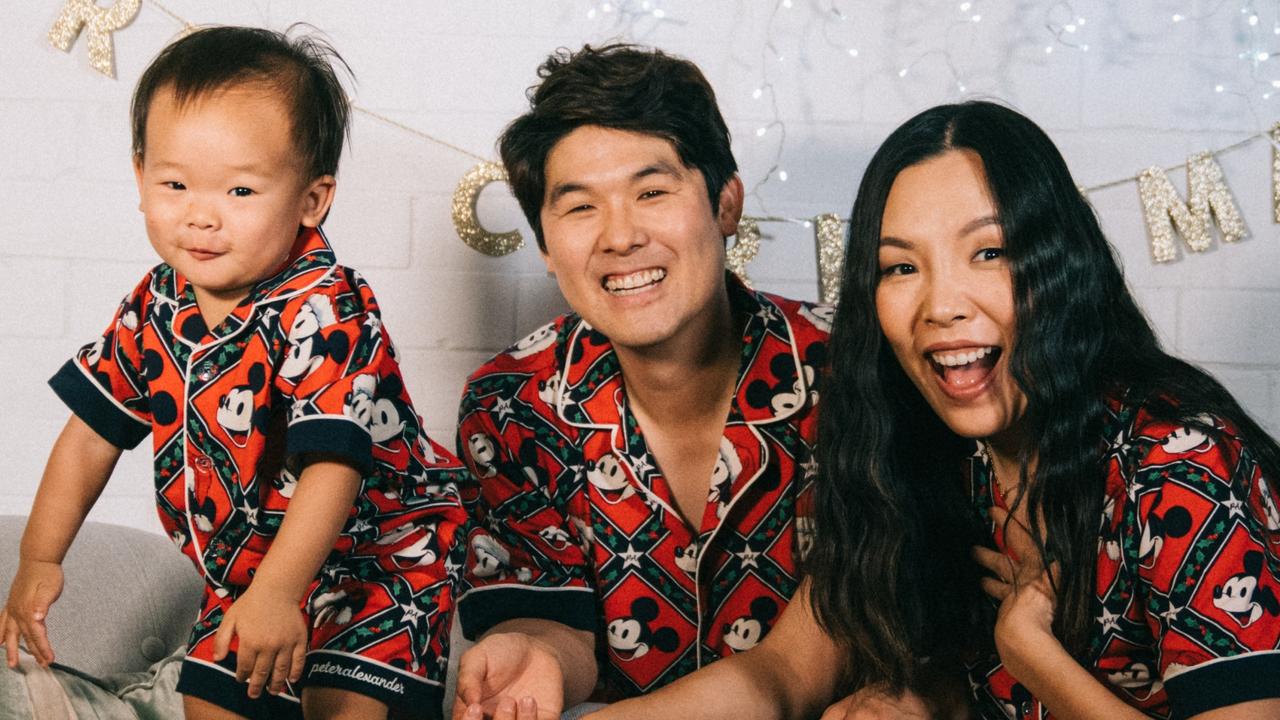Meet the man who could change the fortunes of the Broncos
He helped Ash Barty and Stephanie Gilmore overcome major sporting hurdles but can Ben Crowe do the same with the troubled Brisbane Broncos?
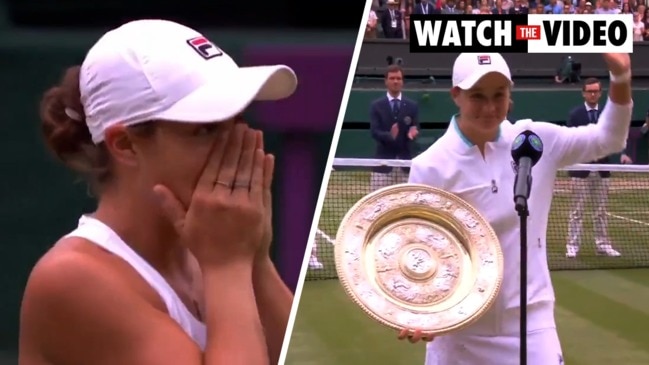
QWeekend
Don't miss out on the headlines from QWeekend. Followed categories will be added to My News.
The first and most shocking “crucible moment” for Ben Crowe came when he was a carefree 16 year old, filled with the buzz a live concert brings.
It was April 1985 and he’d just got home from singing and shouting and stomping his way through Bruce Springsteen’s legendary Born in the USA stadium concert. With The Boss’s lyrics of love, loss and life still circling in his head, Crowe went to bed.
Two hours after getting home, his world tilted. His father, Daniel, 58, was having a heart attack.
The young Crowe tried to revive him. His brother, Danny, tried. Another brother, Patrick, a doctor, arrived to perform CPR as the ambulance pulled up.
“But,” says Crowe, “we were unsuccessful.”
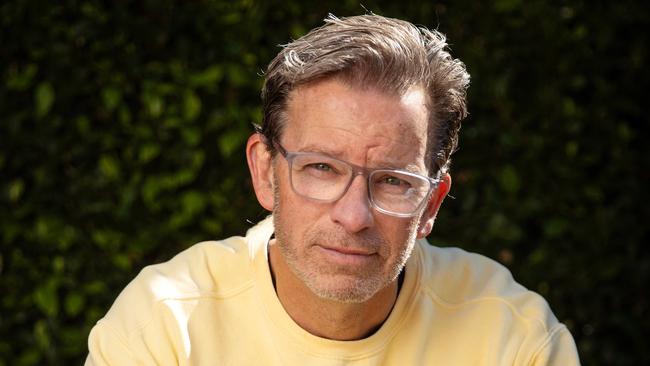
The days and months that followed were filled with grief and confusion and to this day, Crowe has flashbacks of that night.
But he harnesses that horrific experience. He uses it to dig into his stores of courage and care, optimism and resilience. Because, as he tells his clients, your greatest growth comes in your darkest times.
Crowe, 52, is an athlete whisperer, a life coach, a mentor, a bloke who, despite no formal qualifications in psychology or psychiatry, appears to have a knack for getting into athlete’s heads.
He’s the man who tennis ace, Ash Barty, called in when her dream of winning Wimbledon was nipped in the bud in the third round in 2018.
He helped Richmond Football Club coach Damien Hardwick and captain Trent Cotchin overcome the heartache of a bottom-dwelling 2016 AFL season to win the 2017 grand final.
He’s worked with spin-bowler Shane Warne, surfer Stephanie Gilmore and tennis player Andre Agassi.

Now, he’s been called in to help turn the fortunes of the Brisbane Broncos, the one-time NRL finals regulars who have not held the winner’s trophy aloft since 2006 and last made the finals in 2015.
Under Melbourne-based Crowe’s tutelage, the alpha men of league will face sessions about vulnerability, authenticity, connection – and a question: “What’s the worst thing that’s ever happened to you?” Then another. “What got you through it?”
For Crowe, the youngest of six children, the love and support of family guided him through the shock of losing his Dad.
“Just watching my brothers and sisters (Patrick, now 68, Marianne, 60, Louise, 59, Danny, 57, Liz, 54) get around each other and get around Mum (Marianne, now 93) and help her with her grief was quite extraordinary for me to observe,” he says.

“I can see how Mum and my brothers and sisters shaped my values, especially around courage and care but also acceptance and love.
“Knowing that your values can often get you through whatever shit life throws your way was an incredibly poignant, crucible moment that has taught me so much in my work today.”
His work with the Broncos, says Crowe, will be very similar to his dealings with Richmond. Broncos fans will be hoping history repeats and that when the players run out onto Suncorp Stadium on Friday, March 11, they will have learned from their crucible moments to, once again, set The Cauldron alight.
EMBRACE YOUR WEIRD
Watch out on the dance floor if you’re anywhere near Crowe. He tends to let his arms and legs fly off in various directions as he channels his inner Peter Garrett.
“Once I fell in love with Midnight Oil, I realised you could be successful at dancing really badly,” he says.
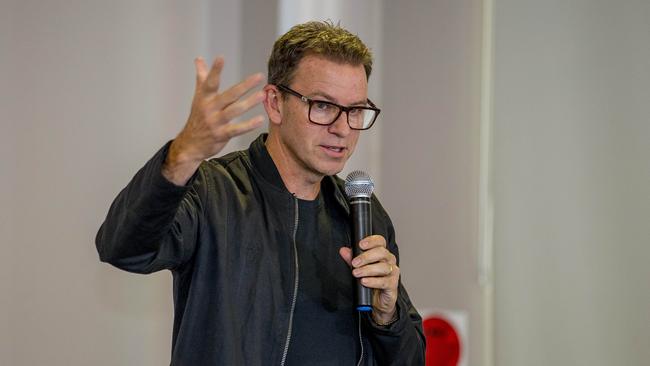
It doesn’t matter if it’s a slow song or hip hop, he’ll bring his lurching movements to any music. It’s his weird and he’s embraced it.
The catchphrase, embrace your weird, has done the rounds of self-help books and motivational quotes for years and Crowe has wrapped his arms around it.
It’s an encouragement to accept your imperfections, to treasure what makes you unique and love yourself unconditionally. And if you’d like the phrase on a T-shirt or sweatshirt, Crowe sells them on his website.
Marketing is, after all, the seam running through Crowe’s work history, although he prefers to call himself a storyteller.
The Melbourne lad’s first job after graduating from Monash University with a Bachelor of Arts in 1989 was as the media and promotions manager of the Australian Hockey Association.
It was Crowe and colleagues who named the men’s team the Kookaburras, a move that captured media attention and elevated the team’s profile.
The work involved some Nike sponsorships and after the 1992 Barcelona Olympics, where the Kookaburras won silver, the American sportswear company offered Crowe a job.
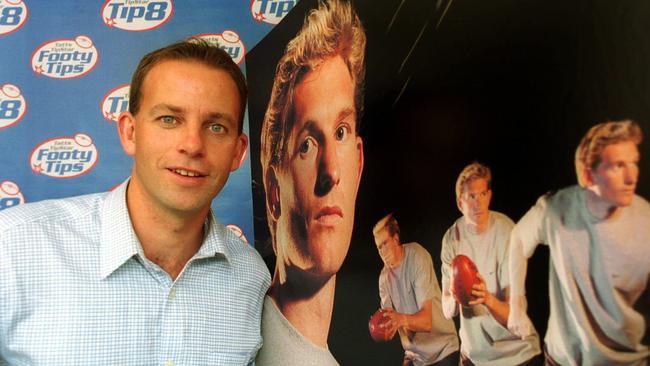
Nike was keen to be more relevant to the Australian market and Crowe, who was now studying sports management, set about signing up athletes.
Sprinter Cathy Freeman, Shane Warne, AFL star Wayne Carey and tennis player Lleyton Hewitt came on board, with Crowe teasing out their story and traits to help woo consumers to buy shoes.
It worked, with big increases in sales, and come 1996, he moved to the US with wife Sally to work on the Atlanta Olympics before settling in Hong Kong as Nike’s Asia Pacific director of sports marketing.
But the heady days of working with Agassi, basketballer Michael Jordan and golfer Tiger Woods took a turn during the Asian financial crisis.
Here entered another crucible moment. In one morning, Crowe had to lay off about 150 staff, some of them his close friends.
“It was 1998, March 10,” says Crowe.
“Etched in my mind.”
Reeling from the ugly process, Crowe set himself up at the Peak Cafe for a couple of days to work out what he wanted to do.

He still had a job but it would be at Nike HQ in Portland, Oregon. The couple had just welcomed their first boy, Harry (now 23, and later Sam, 21, and Ned, 18) and the prospect of the move was not overly enticing.
So he grabbed some Post-it notes and scribbled down what he was thinking. It’s something Crowe urges his clients to get into a habit of doing, because “if you’re in your head, your dead”. “Getting stuff out allows you to process it,” he says.
Amid the flurry of words, the sentence that stuck out to Crowe was: I just want to help athletes do things better and be better for it.
“I had no idea how I was going to do that,” he says, adding in a soft voice, “still don’t really. But that was my why, that was my true north.”
It would take more than a decade to get there. In between, he was the head of marketing for the Hong Kong Jockey Club before returning to Australia in 2000 and the next year, he co-founded Gemba, an entertainment and sport management consultancy.
He moved in sports circles and would mentor some, such as Warne and the former coach of Hawthorn, Alastair Clarkson, “out of friendship and a hobby”.

Then it got serious.
Days before Christmas 2010, Stephanie Gilmore, who had just signed contracts making her surfing’s highest-earning woman, suffered a frightening, random attack.
A homeless man with mental health issues cornered her in the stairwell of her Tweed Heads apartment, bashing her with an iron bar and breaking her left wrist. That healed but her emotional scars were longer lasting. Friends put her and Crowe in touch.
Crowe says the attack affected Gilmore’s confidence and sense of control and he helped her “find her mojo”.
“Making sense of these crucible moments are so important so that they don’t throw us off the rails and we still have that sense of courage to push ourselves outside that comfort zone to achieve what we’re capable of.”
Part of Crowe’s philosophy is that athletes should acknowledge whatever distractions are in their lives, and let them go. It could be celebrity, expectation, money or, as in Gilmore’s case, trepidation about the unexpected.
“If you don’t accept them, you will focus on them and focusing on something you can’t control but want to control is the definition of anxiety, or stress, or pressure, or worry,” he says.

Ash Barty had a taste of that pressure and worry when she returned to Australia in 2018 after her early dismissal at Wimbledon.
By now, Crowe had worked with Richmond’s Cotchin and Hardwick, who had steered their club to the 2017 victory.
Barty, a Richmond fanatic, had revelled in that turnaround and contacted her mate Cotchin about Crowe.
“Ash did all the heavy lifting but it was about getting perspective and finding the joy and fun and remembering that tennis is a game,” says Crowe.
He encouraged her to celebrate the things that make her happy, such as Disney films and dogs.
Barty had already identified the importance of being part of a team, magnified after her stint away from tennis playing cricket with the Brisbane Heat.
Few would have missed her way of talking about “us” and “we” and “the team”, rather than focusing on herself.
But Crowe played a role in Barty’s decision to verbalise her dream of winning Wimbledon.

The power of dreaming is one of the exercises he does with clients.
“If you can have the courage to put these dreams out into the universe, knowing that the only expectation is to bring it all back to the things you can control and stay true to your values, then life becomes this beautiful adventure,” says Crowe.
“And I think Ash Barty is teaching the rest of the world it’s kind of fun to have a crack, to see what you’re capable of.”
C’MON BRONCOS
Alpha male cultures, such as, say, a top-tier rugby league team, see vulnerability as a weakness. Crowe doesn’t.
“Vulnerability is an incredibly powerful principle to embrace,” he says. “These cultures can be quite closed, or close-minded, or defensive,” he says.
He guides athletes and the leadership team to “take that mask off, the armour off, and through humility and curiosity create this beautiful connection”.
He’s speaking generally but I’m trying to hone in on what he will do for the Broncos, a team with ready access to a host of coaches, psychologists and performance gurus.

Crowe is guarded about his methods (although his mindset app sells for $240 on the MojoCrowe website) and says he is yet to fully understand the issues facing the Broncos.
How about embarrassment? “I never judge and I never use that word,” he says.
“My role is to help athletes understand when they may be getting distracted and what’s causing that.”
Okay, well let’s say their confidence is low. “That is part of my role, to create an organisation that is confident,” he says.
“Confidence doesn’t come from results; confidence comes from training and a mindset that leads to results.”
To build that confidence, Crowe will work with the leadership group, including coach, Kevin Walters, chief executive Dave Donaghy who contracted Crowe, and some of the principal players.
“Whether you’re a CEO or a coach, your goal is to understand your life story and then be able to share that story with others in a way that educates and inspires them,” he says.
“Finding the gold in someone’s authenticity and integrity and then utilising that to bring out the authenticity in players is very much part of the process. Some leaders can do that themselves; most of us need a little bit of help to understand what is the magic and the gold to share with the rest of the organisation.”

He says he’ll be guided by the Broncos as to which players he works with and is unsure if that will include newcomer, former South Sydney Rabbitohs captain, Adam Reynolds. He plans to spend February in Brisbane.
“It’s a journey for everyone,” Crowe says.
“You can have ‘a-ha’ moments in the first couple of hours or it can take a few months to unlock. It’s a series of sessions that can go for three or four hours or they can go for a whole day to really take the mask off and get to the depths of working out who you are,” he says.
“If you can accept yourself and have confidence in yourself, imperfections and all, then you can have confidence in others as your comrade, not your competitor, then you can contribute to their success.”
Crowe coaches his clients to look for intrinsic motivations, such as being part of a team or helping others, rather than getting hung up on a big pay packet, social media or celebrity. There’s nothing wrong with a bit of swagger, he says, but hold the ego.
“So many organisations and teams are distracted and let so much unnecessary interference come into their culture, which is sabotaging their performances,” Crowe says.
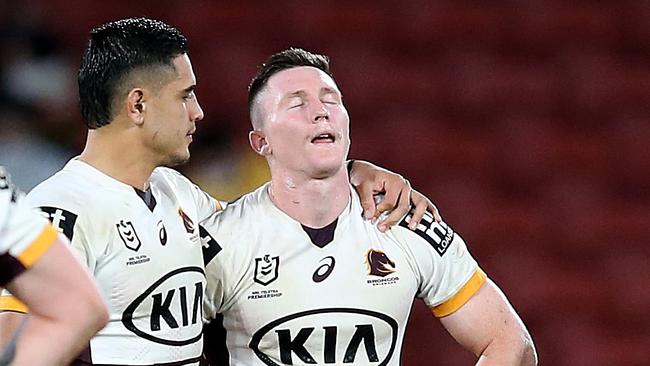
“The difference between confidence and arrogance is … called respect, so bringing some humility and humanity and removing believing that your self-worth is determined by how much money you’re paid or how well-known you are.”
The bulk of us, though, can only dream of being distracted by big pay packets, adulation and avid attention on social media.
But Crowe says the work he does with athletes and their leaders is transferable to everyone, even if we don’t have a killer volley in our skillset.
Because everyone is searching for two things that Crowe reckons he can guide them towards – confidence and happiness.
“If you can work out who you are, that’s when you can find confidence, and if you can work out what you want, that’s when you can find happiness,” says Crowe.
Then you can work out how to get what you want. The search is real: 4000 people signed up for his app in three months.
It’s an ongoing process, with Crowe admitting he has times of self-doubt.
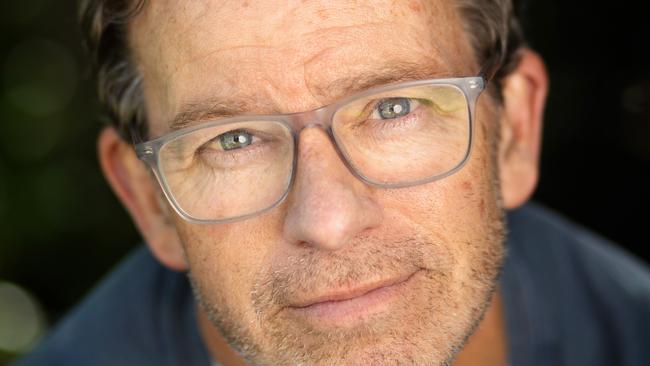
“I’ll go through periods where I question myself and the little imposter syndrome sneaks in,” he says.
“Because we’re human, we’re imperfect.”
The essence of Crowe’s message is know yourself, or in Crowe-speak, “own your story”. Which, he says, isn’t simple with the noise of expectation and desire.
“You have to be ready and wanting to lean in and be vulnerable and make sense of who you are and work out why you might be feeling stuck or unhappy or anxious,” he says.
“And be willing to do the work because it’s not easy, at all, but it’s necessary to find that authenticity but also the joy and what really lights you up.”
It’s a new year and as we struggle with vows to eat less, exercise more, or get that better job, Crowe has an idea for the cleverest resolution we can make: I won’t compare myself to others.
“Only compare yourself to who you were yesterday – and aim to be a little bit better today.” Then repeat, every single day.




